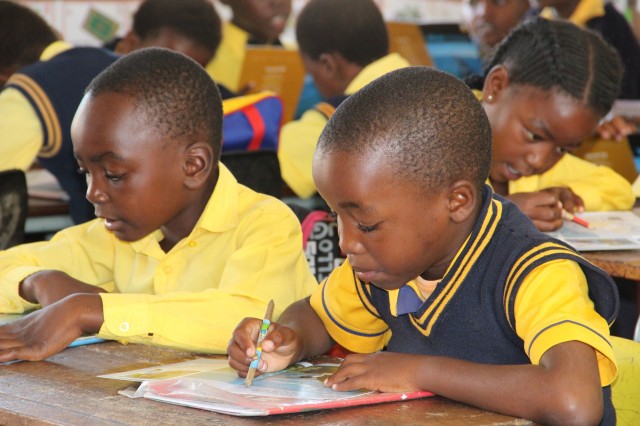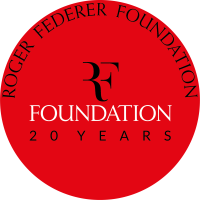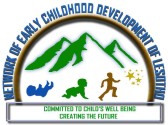School Readiness Initiative in Lesotho
The Roger Federer Foundation's School Readiness Initiative's overall goal is to secure a good start into primary education for vulnerable children through access to quality reception class. In line with Sustainable Development Goal 4.2, the Foundation will be focusing on ensuring that all girls and boys have access to quality early childhood development and pre-primary education so that they are ready for primary education. School readiness refers to the skills, knowledge, attitudes and other competencies required for children to succeed in school and for later learning and living. This means that the children are ready for school, the families are ready to support their children's learning and the schools are ready for the children.
In Lesotho, the programme started in June 2020 and will last until December 2025. It will reach at least 60'000 children in 800 institutions with reception classes. The focus is nationwide with a concentration on vulnerable areas. The initiative will engage in a number of interventions, including sensitization of key stakeholders in the reception class sector such as the national government and local communities. Furthermore, the initiative will focus on building reception class teachers' capacity on how to deliver quality early learning for children. Also, school management bodies and parents will be trained on how to make schools and their communities ready for pre-primary school children by creating an age-appropriate indoor, outdoor and community environment.
For the School Readiness Initiative, the Roger Federer Foundation has developed an Early Learning Kiosk, which is an offline tablet with several tools and apps to capacitate, in a comprehensive manner, teachers in early childhood education. The Early Learning Kiosk was received everywhere with great enthusiasm because of its cost-efficiency and flexible access to know-how and learning, allowing an easy scale to the large number of unqualified teachers. Read more about the Early Learning Kiosk here.
The main goals are:
Establishment of a child development monitoring system at pre-primary age.
Increase in children’s participation in organized learning at least one year before they transition into primary school.
Increase in children who are developmentally on track at primary school entrance age.
Decrease of repetitions and drop-outs in lower grades at school.



